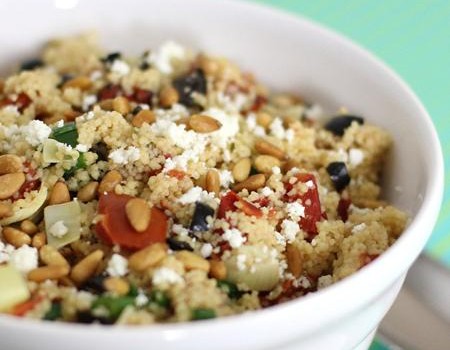March 16, 2015
Beans
Beans, when combined with rice or other whole grains, can offer complete protein, and they’re a staple in many African diets. Countless studies show the benefits of eating a mostly vegetarian diet, and incorporating beans into your daily meals can help you achieve that. They’re also a great source of appetite-suppressing fiber, which can also promote bowel health. Plus they’re rich in folic acid, which can help protect against heart disease, stroke and even birth defects and congenital disorders in infants when consumed by pregnant mothers.
Lentils
Lentils are a great source of folate and the base of many African dishes. If you eat at any Ethiopian restaurant, your entrée is bound to come with lentils. Just one cup of cooked lentils provides 90 percent of your recommended daily intake of folate, 63 percent of fiber, 36 percent of protein and 37 percent of iron.
Peanuts
Even though we know them as nuts, peanuts are in fact a legume. They’re one of the healthiest “nuts” in your trail mix, with zero trans-fats and zero sodium, as well as 30 essential nutrients and phytonutrients. One nutrient that stands out in this legume is manganese, which can boost metabolism and help regulate blood sugar.
Plantains
Though sweet, plantains are often treated like a vegetable in African recipes. Plantains must be cooked but you can boil or fry them and they’ll maintain their subtle sweet flavor. A member of the banana family, they’re an excellent source of potassium, and deliver 36 percent of your recommended daily intake of vitamins A and C.
Potatoes
Potatoes are one of the main crops in Africa and offer tons of health benefits. They’re not only high in vitamins C and B6, but also deliver potassium, which promotes nerve and muscle health, and manganese which helps build strong bones. Despite their reputation as a starch, potatoes are a good source of fiber and yield 15 percent of your recommended daily intake of protein.
Seafood
Seafood is a staple of dishes in North, Southern and West Africa, where seafood is more often the focus of a meal than red meat. Popular choices include fish and shellfish, which are great sources of vitamins A and D, plus zinc. Fish also contains omega-3 fatty acids, which can help brain development in children and can help fight heart disease.
Sweet potatoes
Served as a mash in many African side dishes, sweet potatoes are very low in sodium and saturated fat, but rich in vitamins A, C and B6. They contain even more fiber than white potatoes, and help your body break down glucose slowly, preventing blood sugar spikes.
Couscous
Couscous, which is found in many Moroccan dishes, is one of the most nutrient-dense, grain-based foods a person can eat. It offers twice as much vitamin B6, folate, niacin and riboflavin and pasta.
Teff
Teff is another grain found in Africa, often a part of Ethiopian and Eritrean dishes. It’s high in iron, fiber, protein, calcium and magnesium but perhaps even more significant these days, it’s gluten free. Teff is slowly gaining popularity in the U.S. and can easily be found through online retailers.
Spices
American recipes usually depend on plain or flavored salt, but African recipes often derive their flavor from herbs and other spices. Standout spices found in a lot of African recipes include garlic, which has been shown to boost your immune system and aid in weight management, and ginger, which helps your body better absorb nutrients. Finding replacements for salt can help reduce blood pressure, inflammation, and help curb your craving for fatty foods.
Source: AFK Insider














